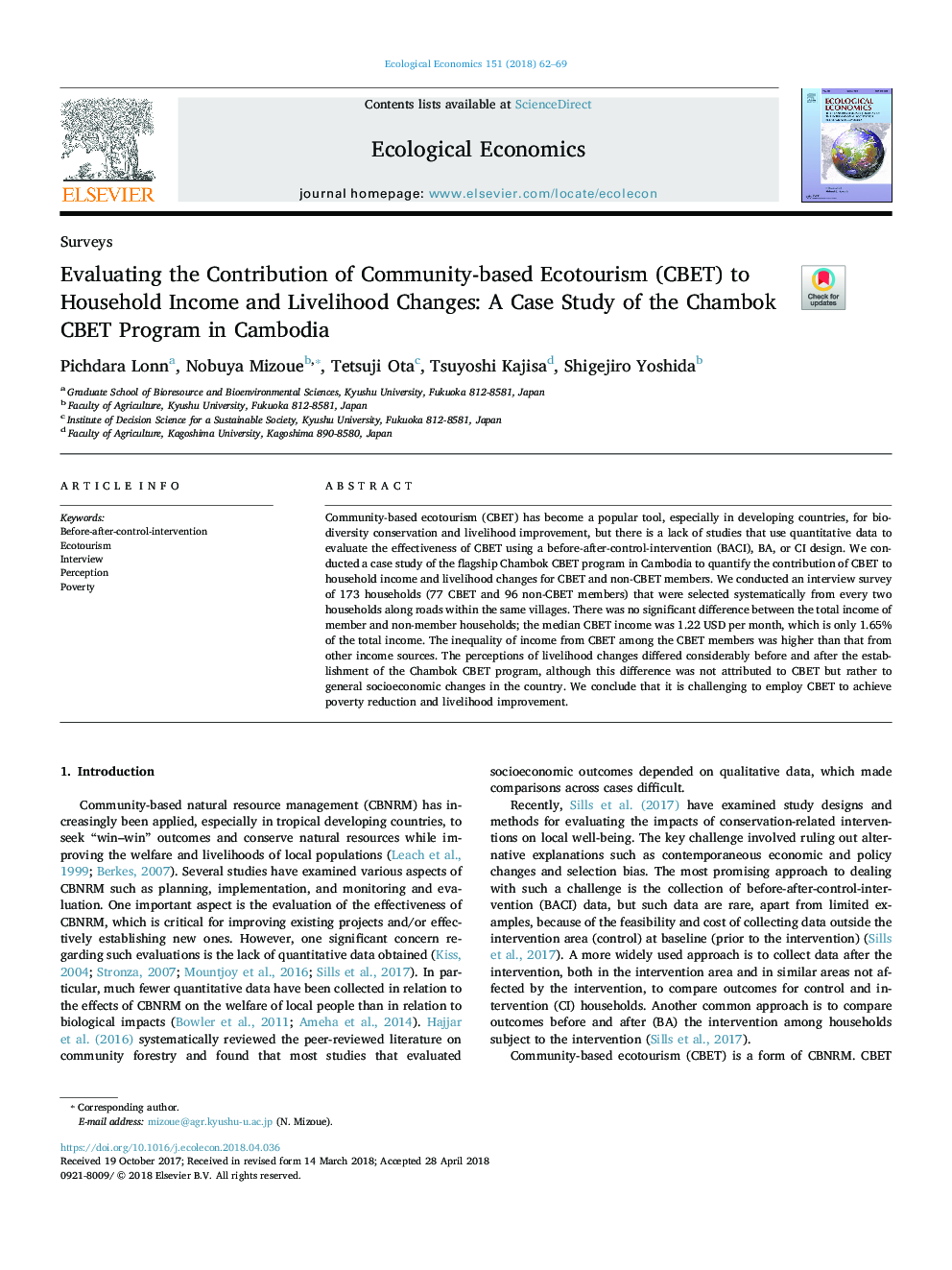| Article ID | Journal | Published Year | Pages | File Type |
|---|---|---|---|---|
| 7343841 | Ecological Economics | 2018 | 8 Pages |
Abstract
Community-based ecotourism (CBET) has become a popular tool, especially in developing countries, for biodiversity conservation and livelihood improvement, but there is a lack of studies that use quantitative data to evaluate the effectiveness of CBET using a before-after-control-intervention (BACI), BA, or CI design. We conducted a case study of the flagship Chambok CBET program in Cambodia to quantify the contribution of CBET to household income and livelihood changes for CBET and non-CBET members. We conducted an interview survey of 173 households (77 CBET and 96 non-CBET members) that were selected systematically from every two households along roads within the same villages. There was no significant difference between the total income of member and non-member households; the median CBET income was 1.22 USD per month, which is only 1.65% of the total income. The inequality of income from CBET among the CBET members was higher than that from other income sources. The perceptions of livelihood changes differed considerably before and after the establishment of the Chambok CBET program, although this difference was not attributed to CBET but rather to general socioeconomic changes in the country. We conclude that it is challenging to employ CBET to achieve poverty reduction and livelihood improvement.
Keywords
Related Topics
Life Sciences
Agricultural and Biological Sciences
Ecology, Evolution, Behavior and Systematics
Authors
Pichdara Lonn, Nobuya Mizoue, Tetsuji Ota, Tsuyoshi Kajisa, Shigejiro Yoshida,
